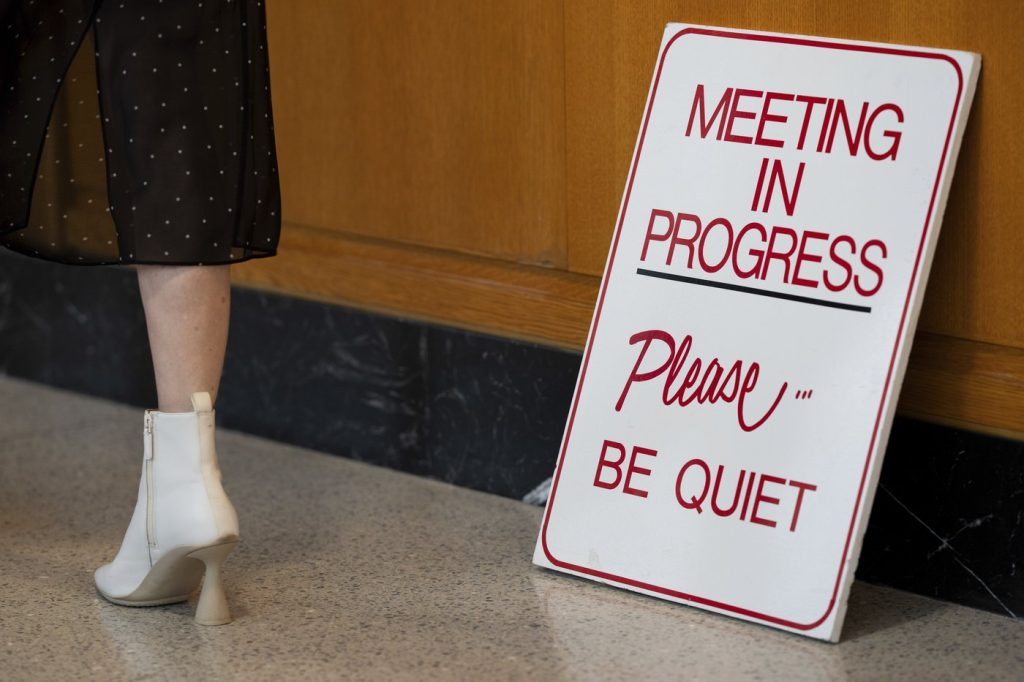Virginia lawmaker Jackie Glass recently shared her experience regarding the ongoing culture of sexual misconduct within the Statehouse during a speech on the legislature's floor. She revealed that when she joined the Virginia Legislature, she received a "safety brief" warning her about whom to avoid socializing with and being alone around. Addressing the male House speaker, she implied that he did not receive such a caution. Such remarks highlight the enduring issues of sexual harassment that continue to confront women in legislative environments, despite the substantial impact of the #MeToo movement that gained momentum in 2017.
The #MeToo movement has led to numerous politicians, celebrities, and other public figures facing allegations of harassment and misconduct, exposing a toxic culture long shielded by silence. In response, many state legislatures have introduced or strengthened their policies against sexual misconduct. Despite the increasing number of women in state legislatures, which aims to reduce the perception of these spaces as “boy's clubs,” allegations of misconduct persist across various statehouses.
Since the beginning of the #MeToo era, the Associated Press has documented at least 147 state lawmakers in 44 states accused of sexual harassment or misconduct. Over a third of these individuals resigned or were expelled from office, while approximately another third faced punitive measures like losing leadership positions. Notably, a dozen high-ranking state officials, including governors and attorneys general, also faced allegations, most resulting in resignations.
The AP's database shows that the number of accusations has been rising annually, with 14 state lawmakers reported in just 2024, doubling the count from the previous year. The National Women’s Defense League, an organization advocating for sexual harassment policies in state legislatures, reports that accusations are nearly equal among Republicans and Democrats, with 94% being men.
An AP survey conducted from November to January indicated that around half of state chambers have updated their sexual harassment policies in the last five years. For instance, the Nevada Legislature broadened its sexual harassment definition to incorporate "visual" conduct, such as derogatory gestures or imagery. The Kentucky General Assembly also added sexual harassment to its list of ethical misconduct, a change following previous scandals.
While most legislative bodies now provide sexual harassment training, it varies in terms of frequency and scope. Experts advocate for ongoing, in-person training that incorporates real-world scenarios to effectively address these issues. Yet, transparency about these policies remains inconsistent; for example, the Oklahoma Senate and West Virginia Legislature declined to share their harassment policies, citing them as internal documents exempt from disclosure.
Perspectives on progress vary among lawmakers. Pennsylvania Republican Rep. Abby Major noted an uptick in respectful treatment towards women, possibly stemming from fear of negative repercussions following harassment disclosures. Conversely, Michigan Democratic state Sen. Mallory McMorrow believes changes are more influenced by the increasing representation of women in legislative power rather than policy alterations alone.
Despite improvements, underlying issues of sexism remain. Georgia state Rep. Shea Roberts expressed concern that a lingering expectation exists for women to conform by avoiding confrontation to be seen favorably in male-dominated environments. The decision to report misconduct is still fraught with difficulties, with many accusers hesitating due to the political implications tied to such claims.
Oregon’s Legislative Equity Office reported that complaints came primarily from legislative staff, reflecting an environment where many are still reluctant to come forward due to potential backlash. For instance, Gabrielle Brock, a former communications staffer for Indiana Senate Democrats, shared her experiences after alleging groping by then-Attorney General Curtis Hill. Despite legal actions, the fallout led her and her colleagues to leave their positions, illustrating the burdens that accusations can impose on the complainants’ careers.
As men continue to hold the majority in state legislatures, there is a growing acknowledgment among male lawmakers that the responsibility for correcting misconduct lies primarily with their peers. Advocates emphasize the need for continued efforts to ensure a safe atmosphere in political workplaces to promote women’s participation in governance. They highlight that while the #MeToo movement has sparked conversations, ongoing challenges still dissuade women from seeking office, with societal and institutional biases persisting against them.










